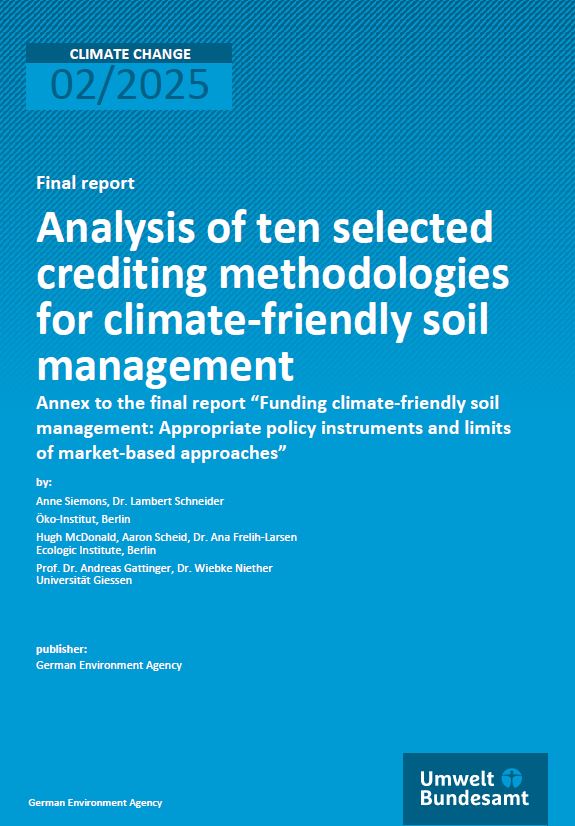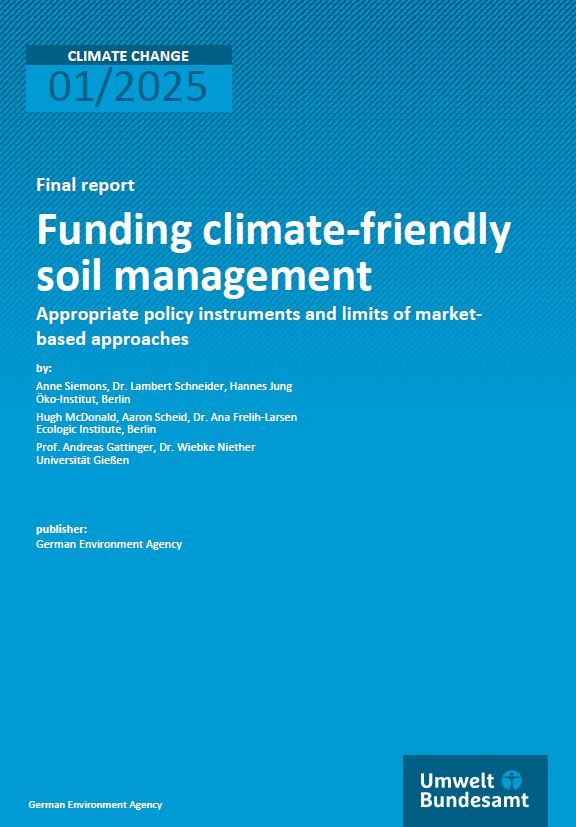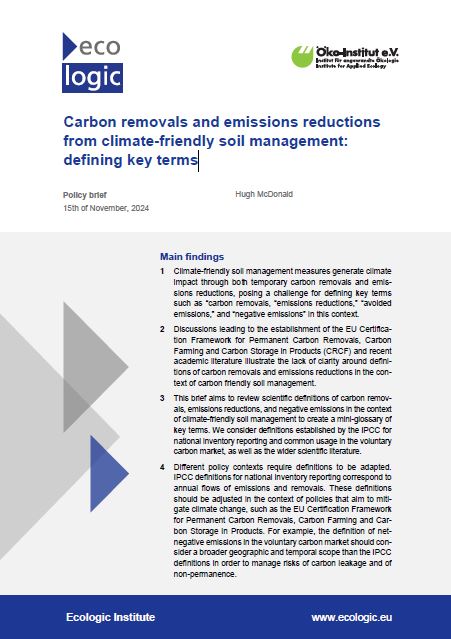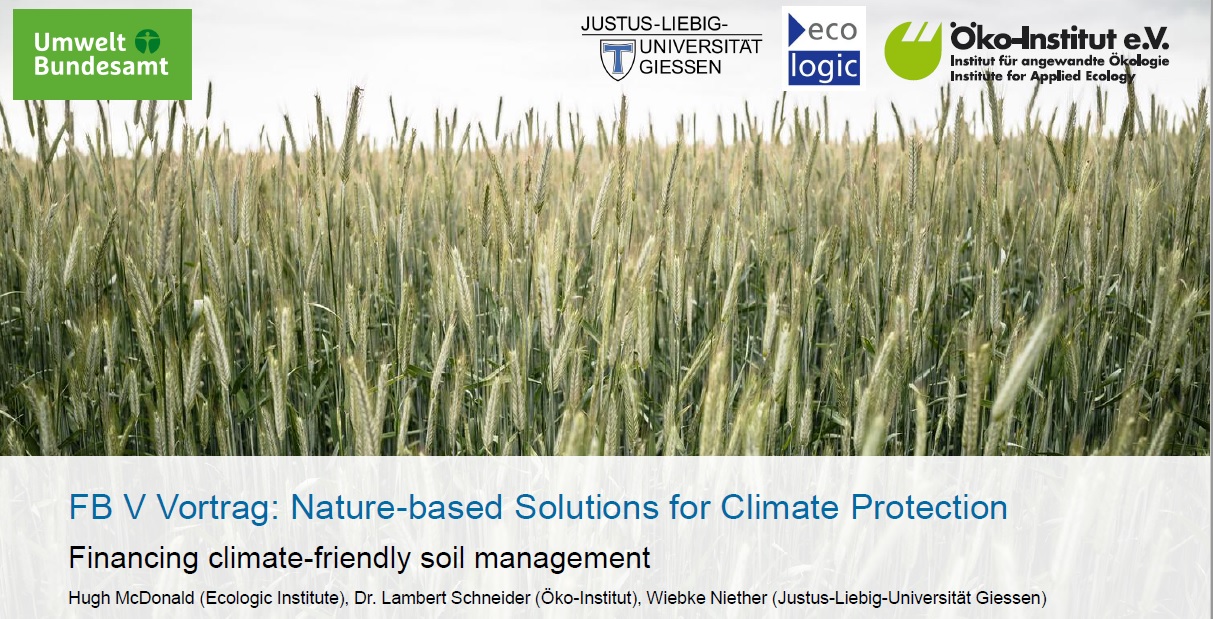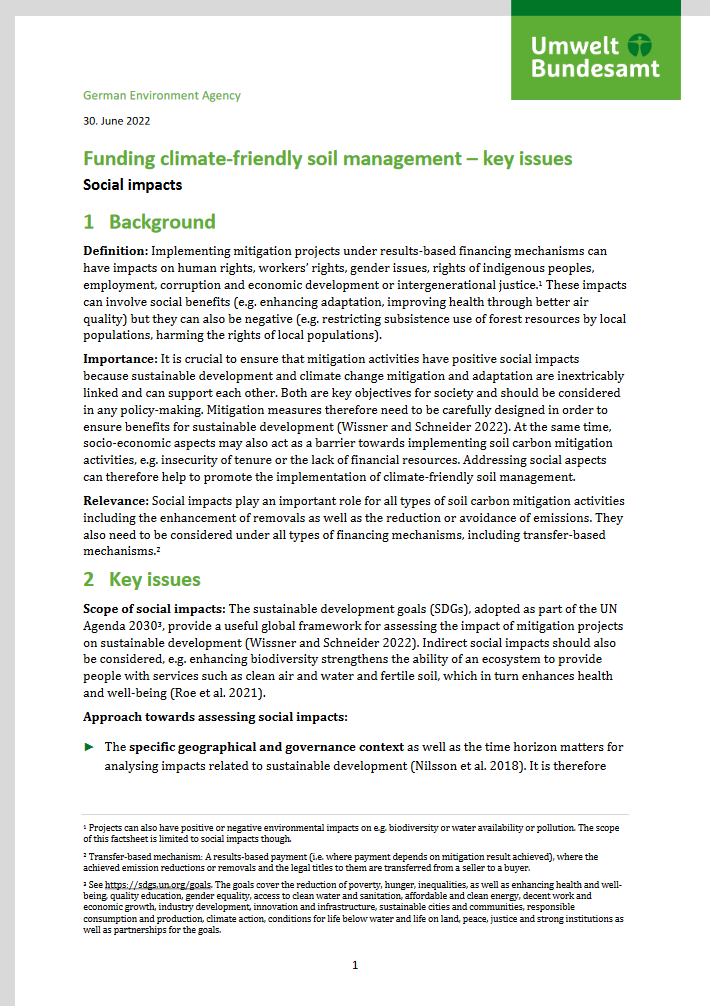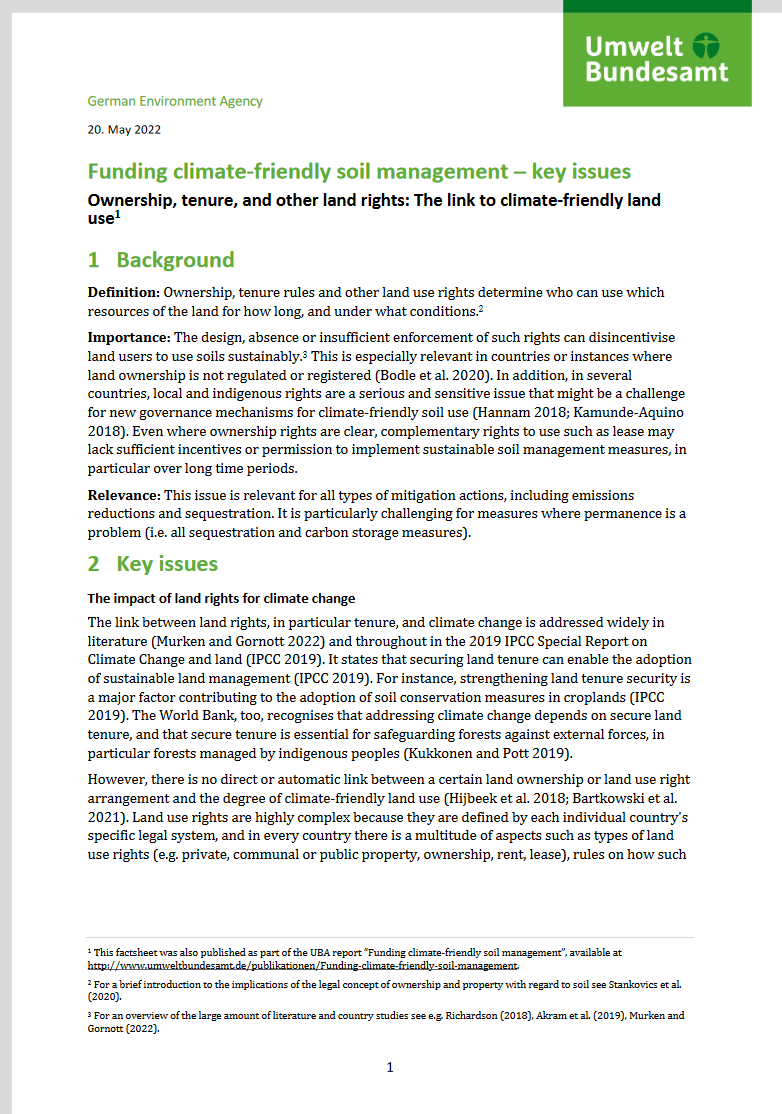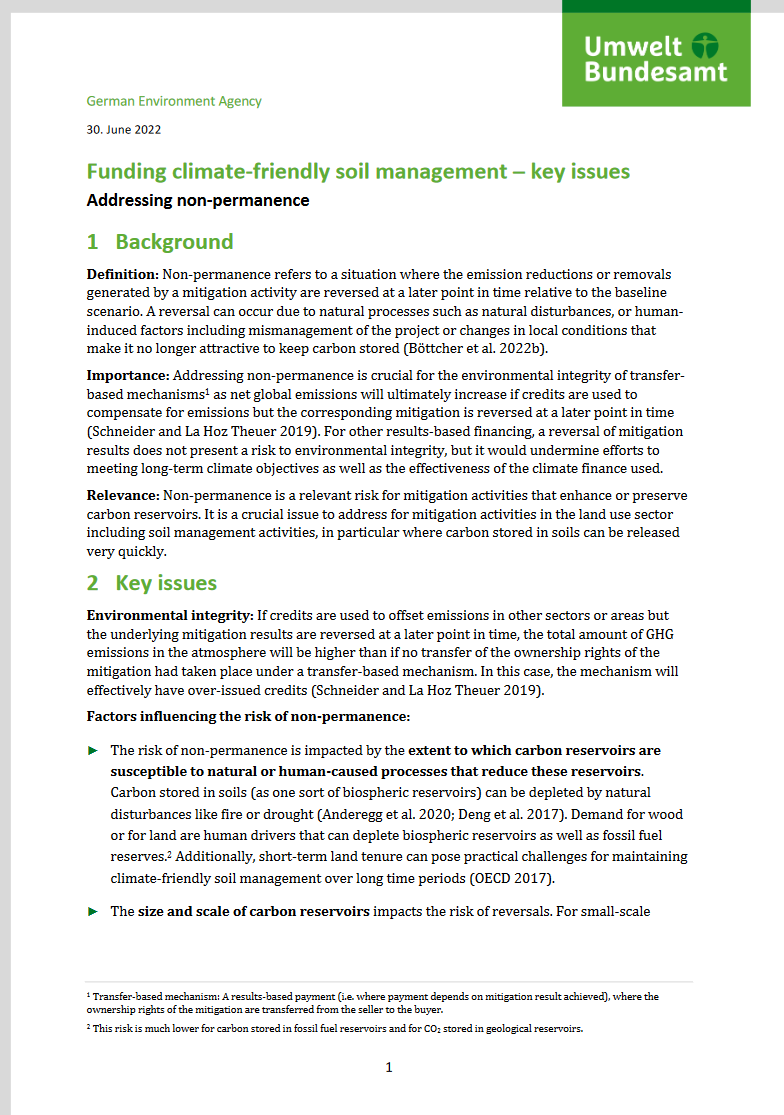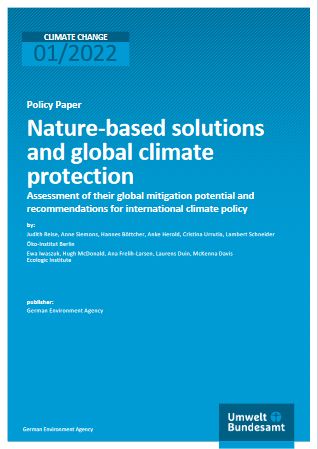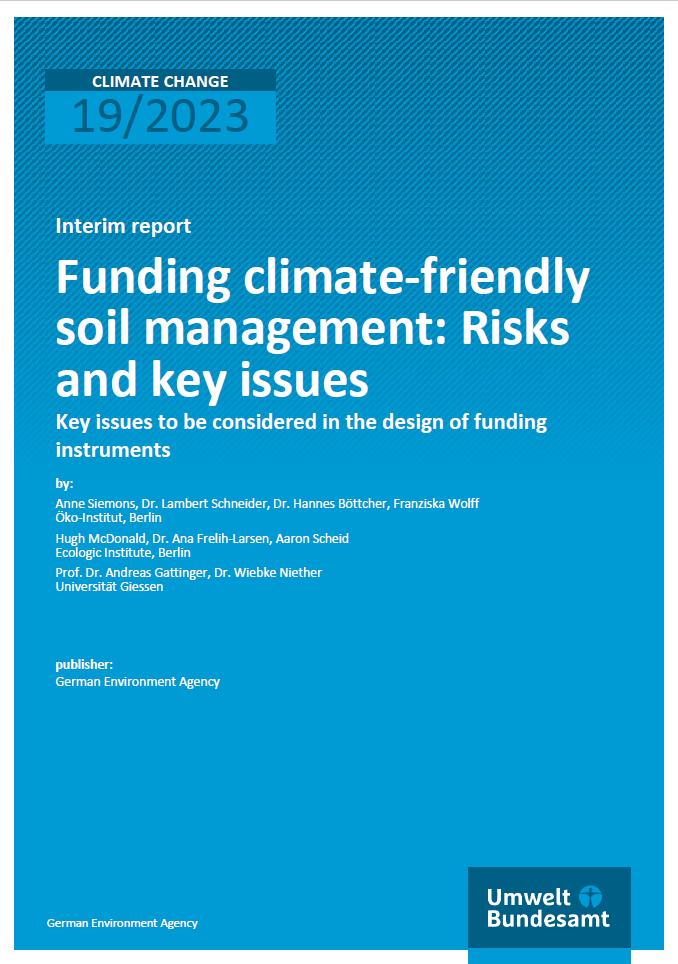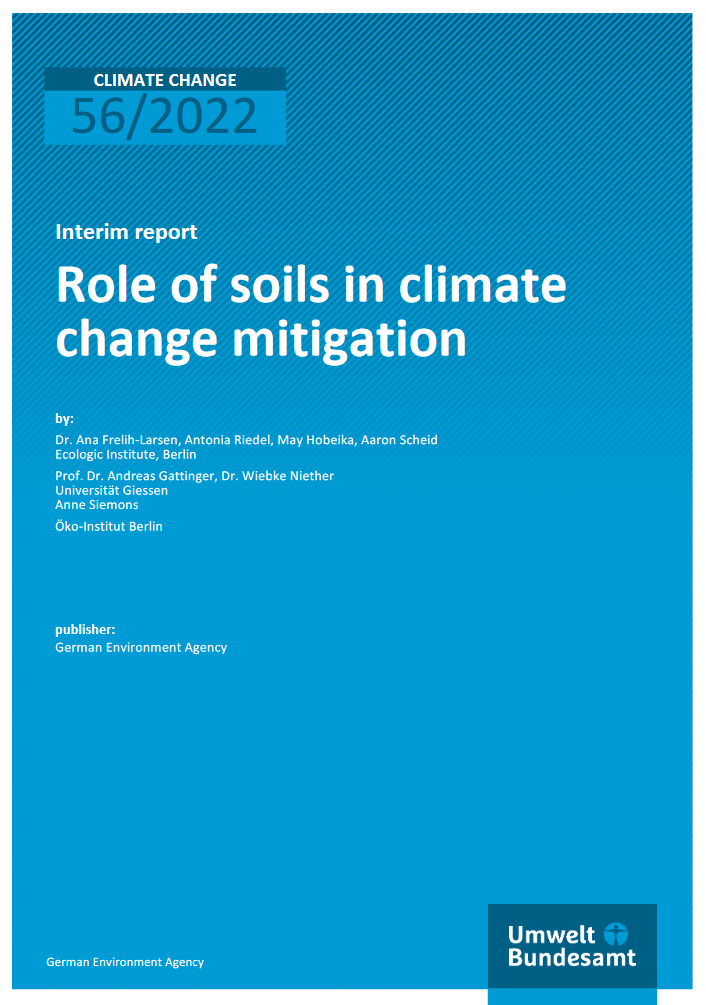Analysis of ten Selected Crediting Methodologies for Climate-friendly Soil Management
Annex to the report "Funding Climate-friendly Soil Management"
- Publication
- Citation
Siemons, Anne et al. 2023: Analysis of ten selected crediting methodologies for climate-friendly soil management. Annex to the final report "Funding climate-friendly soil management: Appropriate policy instruments and limits of market-based approaches". German Environment Agency: Dessau-Roßlau.
This report, commissioned by the German Environment Agency and co-authored by Ecologic Institute, contains a detailed assessment of ten crediting methodologies on climate-friendly soil management measures. These crediting methodologies are examples of result-based payment and offsetting approaches to fund enhanced carbon sequestration and reduce greenhouse gas (GHG) emissions from agricultural practices. Assessed crediting methodologies include prominent private market methods such as Verra's Improved Agricultural Land Management method and methods from American Carbon Registry, as well as smaller European methods such as Austria's Ökoregion Kaindorf's Humus Certificates methodology, and public examples from the Alberta Offset Program and the Australian Emissions Reduction Fund.
Our evaluation of these certification methodologies assess each against a set of guiding questions and indicators. The evaluation framework covers key aspects, including emission quantification, baseline setting, additionality, risk management, environmental and social impacts, and governance.
A synthesis of the analysis is included in the final report of the project, where we conclude that the certification methodologies exhibit significant weaknesses. Most pressing is the issue of non-permanence, which is inadequately addressed. Quantification and additionality also pose significant challenges in many methodologies.
This publication is an annex to the report "Funding Climate-friendly Soil Management. Appropriate policy instruments and limits of market-based approaches."
